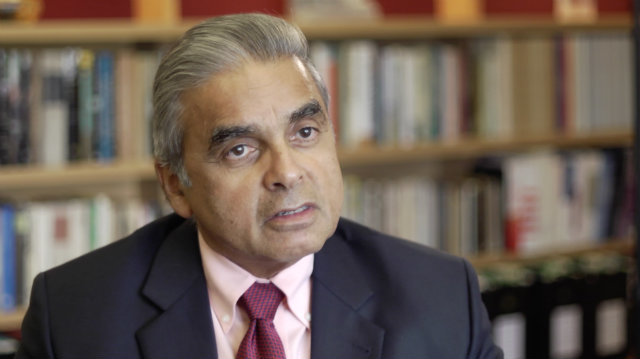
There was this recent article at Rappler which quoted the 2nd most influential Singaporean after Lee Kuan Kew, former Singapore to UN Kishore Mahbubani, the head of Lee Kwan Yew School of Public Policy, sees that the Philippines can succeed by emulating the secrets of progress of success of the island state in areas of" meritocracy, honesty, pragmatism... (those cover character and competence)
Why? Because Filipinos are the most talented people in the world, and most sought after talents the world over. (See the bulging OFW remittances and the expatriate experience of the Leaders in this class.
The Lecturer copies paste the article at Rappler for easy reference of leaders.
#SG50 The Philippines can succeed like Singapore (really?)
1. Meritocracy: The best should get the chance to lead
One of the best case studies of Singapore's principle of meritocracy is Mahbubani himself.
Born to Hindu Sindhis, the dean calls himself “a minority within a minority” in a country composed of 75% Chinese, 15% Malays, and 6 to 8% Indians. What brought him from a feeding program to the UN Security Council was not family or ethnic connections but Singapore's meritocratic system.
The technocratic Singaporean government gives scholarships for outstanding students to study in prestigious universities abroad. In exchange, they serve out bonds in the civil service. To keep them there, Lee imposed a controversial policy that pegged the salaries of ministers and senior civil servants to the top of the corporate world.
As a result, Singapore's brightest minds end up with the government instead of the private sector.
A government scholar who studied in Singapore and Canada, Mahbubani said meritocracy is a question of policy.
“The most important thing about meritocracy is your destiny is not determined at birth. Right now, if you're born in Makati, you know you'll succeed, and if you're born in the slums in Manila, your chances of success are very low. But you can change that. You can decide that someone born in the slums should be given equal opportunity.”
“That's what meritocracy is about. We just assume everyone should be given the chance to prove they are good, and if you give them the chance, you will have tremendous reservoirs of brain power in the Philippines you can exploit,” he said.
2. Honesty: Crack down on corruption
Giving public servants competitive pay helped minimize corruption in Singapore. The small nation consistently ranks as among the least corrupt countries due to a tough legal code and heavy fines.
Lee is credited for setting a “zero tolerance” approach to corruption even before the term gained currency. This top-level commitment carried on, with the independent and effective Corrupt Practices Investigation Bureau (CPIB) directly under the prime minister's office.
Economist Donald Low, associate dean at the Lee Kuan Yew School, said the ability to mobilize resources for public services is a central lesson from Singapore.
“Many governments fail at that basic task,” Low told Rappler. “They are unable to raise enough taxes to fund public services. The state isn't autonomous. Bureaucrats are chosen on the basis of friendships. There's corruption. Cronies are favored.”
Singapore has lower taxes than the Philippines, at 20% for the highest income bracket compared to Manila's 32%. (READ: Is the Filipino middle-class overtaxed?)
Commenting on the difference in taxes and services between Singapore and the Philippines, a Singaporean political observer joked, “I think you need to hang a few people!”
Yet fighting corruption is not just a matter of penalties and policies. A major geopolitical figure, Lee famously commented on the Philippines' “soft and forgiving culture.”
“Only in the Philippines could a leader like Ferdinand Marcos, who pillaged his country for over 20 years, still be considered for a national burial. Insignificant amounts of the loot have been recovered, yet his wife and children were allowed to return and engage in politics.”
3. Rule of law: Implement and follow rules
Singapore's reputation as a “Fine City” is imprinted in souvenir shirts and magnets. As the Western media often points out, chewing gum is banned in the island, vandalism is punishable by caning, and there are fines for spitting, littering and even feeding the monkeys.
While some rules are draconian and others a caricature, the strict implementation of laws helped foster a culture of discipline that even Filipinos working in Singapore appreciate.
General manager Cristy Vicentina of Philippine National Bank's Singapore branch said, “Filipinos, we have so much discipline. It's just that sometimes when we're back home, we forget to exercise that.”
Publisher Luz Campos Mesenas, a Filipina who moved to Singapore 15 years ago, advised Filipinos to read up on the Lion City's rules before coming over.
Ironically, she said: “You have to be a law-abiding citizen here.”
4. Vision: Plan long-term and build institutions
From being a modern city, a Garden City, and now a Smart Nation, Singapore's leaders pushed the country forward through vision and long-term planning.
Even succession is done way in advance. Lee's handover of power to former Prime Minister Goh Chok Tong in 1990 was a decade-long process. Singapore's first prime minister, Lee gave up the job voluntarily and unprovoked, but stayed on as an influential senior minister and minister mentor.
Associate Dean Low, who also served 15 years in Singapore's government, credited Lee and the first generation of leaders for building strong institutions.
“We were able to build very quickly relatively autonomous public institutions like the public housing board – the Housing Development Board – that was able to house 80% of citizens in a matter of 20 to 30 years.”
Low said that the lesson, especially for emerging and developing countries, is to balance democracy with “a strong, competent, meritocratic state.”
“I think a lot of the literature on development has been focused so much on checks and balances, accountability, ensuring the government doesn't abuse its power. All that is important but I think the first order of business for government is to become a modern, effective state,” he said.
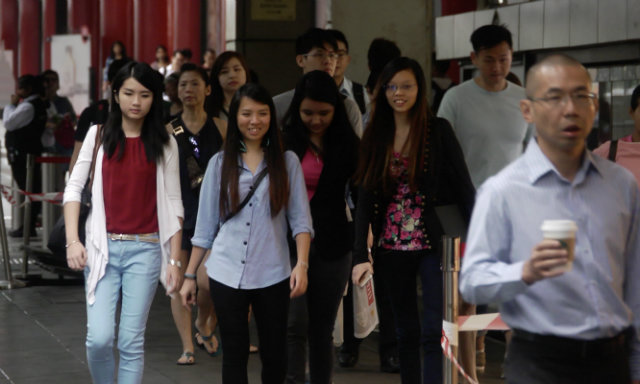
DISCIPLINED PEOPLE. Singaporeans describe themselves as a 'disciplined, restrained lot.' Photo by Adrian Portugal/Rappler
5. Learn: Innovate and keep changing
On Singapore's 50th year, it has gone beyond the third-world to first-world cliché. The old principles and economic model are increasingly seen to be outdated, and public policy experts warn against elitism and inequality as a consequence.
This is where they say Singapore can also learn a lesson from its past: bold leadership.
“Success creates this aversion to change, an aversion to risk,” said Kenneth Paul Tan, vice dean at the Lee Kuan Yew School.
“One good lesson is no matter how successful one has been through the years, the willingness and ability to keep surveying their circumstances, and keep learning from other people must still be there. There might still be better ways to do things,” he said.
“Country envy” then does not have to be depressing. After all, the diplomat-academic in Mahbubani said it did Singapore well to learn from the world.
“No society in human history has been as successful in improving its living standards so quickly and so comprehensively. As a result of that, Singapore has learned all the best practices from the rest of the world. Singapore is in some ways one of the best copycat countries.”
He added: “Whatever Singapore has copied from the other countries, we invite other countries to copy from Singapore.” – Rappler.com
This week, Rappler puts the spotlight on Singapore as the city-state celebrates its 50th anniversary on August 9. We take a look at the forces that shaped it, and what lies ahead. Here are stories part of the series:

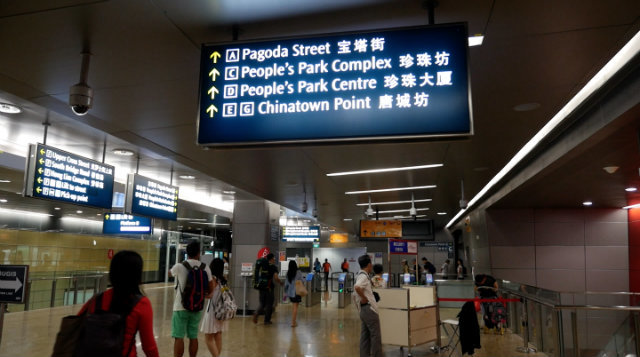
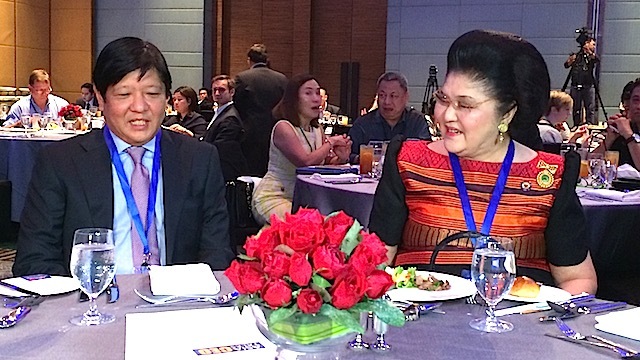
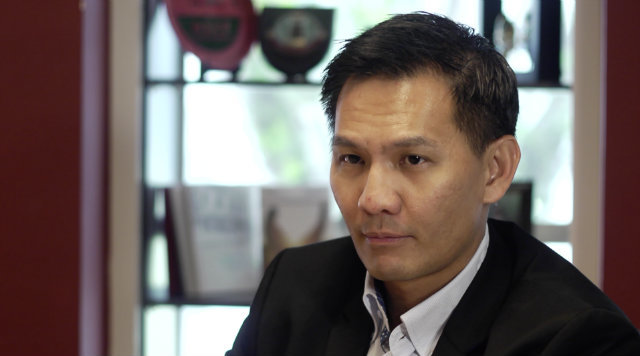
Singapore's success as a country respected by the world is primarily due to PM Lee Kuan Yew, who had an extraordinary grasp of the world's political and economical trends. many political and business leaders continued to seek his insights even after he stepped down as PM. Mr. Lee's legacy is modern Singapore. In his own words he said, "I have spent my life, so much of it, building up this country. There's nothing more that I need to do. Atbthe end of the day, what have I got? A successful Singapore. What have I given up? My life.." Lee Kuan Yew cried on national TV in 1965 when he announced to the nation that the merger with Malaysia has failed. He touched a lot of lives when he anguished for Singapore and with thatcher got the impression of being a hard man with a single-minded devotion to the survival and success of Singapore. Yes, this is a call to Philippine progress: Can we do it leaders? It is not impossible for as long as we become leaders like Lee Kuan Yew, a leader who gave up his life for the progress of Singapore. I will dream to be like him!
ReplyDeleteYes we can. Especially if we can have Thatcher like leaders. As I have said, who knows, one among you could be a cabinet secretary and even the President of the Phil. Dream on Leaders, Dream on Leader Dra Suzette
DeleteI agree with you Dra. Suzette. We need to transform our leadership skill into "kamay na bakal" if the situation calls for it. I want to be this type of leader as well. But first I must prove more to myself that I am backed up with right knowledge and skills so I may gain respect. People may follow not because of fear or because of authority but because they know that we have the 3 components of leadership (character, purpose and competence).
ReplyDeleteWhat I know is I have started it in the smallest unit of humanity/society which is in our home. I remember my husband telling his friends that his wife is "batas militar" and my husband knows that I am a very disciplinarian mom (with care), with our employees they know that I give importance with values and systems, even the leaders are not exempted. Now that I started to claim that I want to make a difference, I want to continue being focused in doing what I do, to contribute in the Philippine's progress. I hope and pray for God's gift of knowledge and wisdom in doing my next steps in life.. I hope it will make a great impact even in my own little way, I can give contribution to our Mother land.
Yes we can Prof! Yes we can...
RCEE
From can do to doing. Thanks Leader RCEE
DeleteI have always envied Singapore for what it has achieved. It was during our Management Board Forum two years ago on ASEAN integration when I started to realize how far Philippines is from Singapore not only in terms of economic development but in almost everything, and the most cited root cause is the rampant corruption in our country. I do not really know how to address this problem. It may seem to be easy for aspiring Presidents but once they get into the position, no one has truly succeeded. President Aquino means well and I commend him for his efforts but his best could have been better if we will all cooperate. In my opinion, everything is possible if our government will implement stricter laws. The forgiving culture of the Filipinos is now a disadvantage which is the reason why dishonesty and corruption are rampant. This is also the reason why Filipino people are undisciplined. Yes, we still have a long way to go but by being selfless and prioritizing the welfare of our country and our people, we can make it happen Leaders! Let us also ask the Lord to give us good leaders like Lee Kuan Yew. Thanks Prof. for sharing. This is a very timely call. God bless us all. God bless our country!
ReplyDeleteWe need more good leaders to steer our country towards development and progress. The last time I voted in the election was when I was 18 years old. I lost my confidence in our political system. For the past few weeks I have realized that we all can make a difference in the current condition of our country. By refusing to be part of the election will not help solve our political problems. So recently, I went to Comelec, re-registered my name again so that I can vote this coming election. I want to be part on selecting good Leaders. We have to take ownership in our surroundings and we should not allow others to shape our environment,
ReplyDeleteHindi po election ang solution sa problema ng ating bansa as we all bitterly discovered. Let us discover pockets where we can make a difference. Many small things with big efforts. Collectively we can make this place a better place to live in. Others simply give up and leave the country.
DeleteYou are right. Ownership of the problem and the solution na kaya natin at our level
Letr us vote ourselves to be the leaders whom our country need. That is why we have this class
DeleteThank you Prof. Saguinsin for inspiring me to go an extra mile and help rebuild our nation. With the Ateneo-MBA Regis program, I am praying that more passionate leaders will emerge...to stand together and believe that we can rise again. Nation building starts with myself. I will share this passion with the people I get in touch with. I just came from an assembly this morning and I shared a little bit of my passion. I thank God for making me a better person in this Leadership course. I hope that with the "little" that I am doing, I will contribute to nation building.
ReplyDeleteIn 2005, I had the opportunity to stay longer in U.S.A.and was discerning if I had to leave our country and stay there for good. But with God's grace I came to a happy conclusion that my mission field is in the Philippines. Being a good citizen of the
Philippines is my contribution to the world. Being a good leader is my contribution to nation building.
A.M.D.G.
Yes Leader Belle. In our own country in this time. We and God can make beautiful things in our time. If we want to.
DeleteThank you for staying, as I believe too.
This is our country. We make it a good one
Did you see the TV ad on congenital heart disease? The young doctor who had the dilemma as to whether he would go abroad and improve his finances, or stay on and do what he loves, ie saving lives of young children who have heart problems. It is so touching that he chose to stay on to make lives of those heart challenged children
Delete